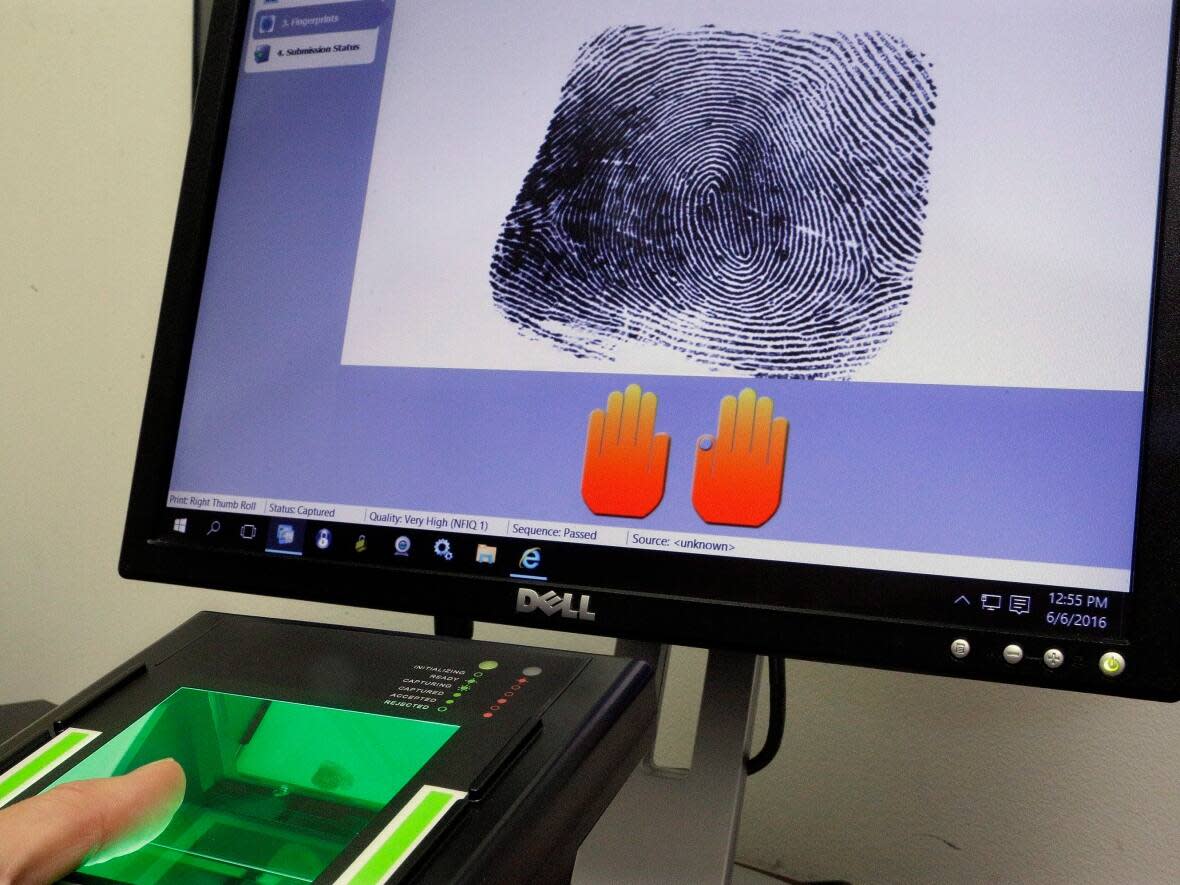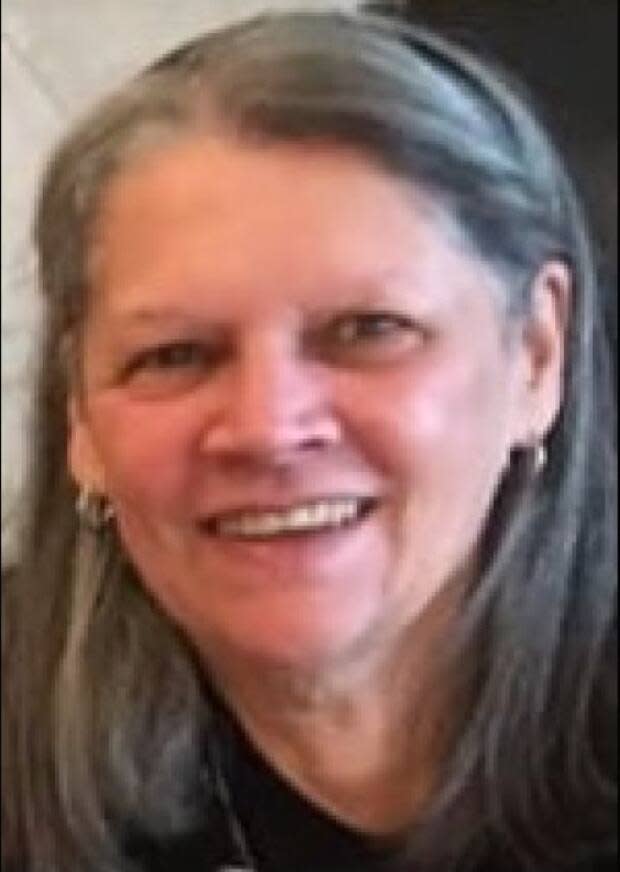With mysterious lack of fingerpints, would-be volunteer can't pass a police check

Andrée Leger-Cormier feels like a criminal, though she's committed no crime.
The 68-year-old has lived in Moncton for 50 years, in the same house for 48 years. She has five children and six grandkids, all boys. She's spent her life working with children through various roles, including as a social worker and supply teacher.
The retiree was hoping to do some volunteer work at her grandchildren's school this year. As she's done many times in her life working in this field, she headed to the police station for a background check.
That was in April. Four months later, she still doesn't have a clean background check, and has no idea when, or if, she will.
Leger-Cormier tried five times to get her fingerprints scanned. The first three times were at the Codiac RCMP station, the last two times at a forensic laboratory in Moncton. She's tried creams, alcohols, even the product used to lift fingerprints from the skin of dead people.
"They even tried to hold my hands and do it for me, but nothing came out. They couldn't see fingerprints on my fingers."
A second Andrée Leger-Cormier
Why does Leger-Cormier really need to have her fingerprints scanned?
Someone with her name and date of birth has a criminal record, and without her fingerprints, it can't be proven Leger-Cormier isn't the same person.
The RCMP, who weren't available for an interview before publication, haven't told Leger-Cormier much about this mystery criminal, including what crime she committed.
This spring wasn't her first time hearing about this. Leger-Cormier also needed to get a police check in 2021, but since her fingerprints were fine then, she could prove she wasn't the same Andrée Leger-Cormier who had committed a crime.
That's not the case now. She can't use her fingerprint evidence from 2021, since it's destroyed after three months.
The emergence of a second, less law-abiding Andrée has left Leger-Cormier feeling even more puzzled. If it's a case of stolen identity, then there should be a clue in her finances. But Leger-Cormier doesn't do online banking, and her bank hasn't alerted her to any suspicious purchases or withdrawals.
Plus, since Leger-Cormier's line of work has frequently required her to obtain police checks, she knows the other Andrée Leger-Cormier has only showed up in the past few years.
"I've lived in the same place," Leger-Cormier said. "I've had the same phone number for the time I've been living here. So it's kind of weird."

She wonders if it's a computer error with the RCMP — Leger-Cormier has also had to scan many people herself to vet them for work, often putting her name on forms sent to the police. Could there have been a mixup?
Or maybe it was an issue with her name — it's French, and has an accent on the first "e" in Andrée. Perhaps the other Leger-Cormier didn't spell her first name with an accent?
"[The RCMP] said we don't use those on our computer when we send the police check," Cormier said.
All of her information has been sent to the RCMP in Ottawa, she added, but that was two weeks ago, and she still hasn't heard any updates.
At a loss, Leger-Cormier has decided to share her story in hopes that someone, somewhere, can provide some answers.
"They call me this special person, but I don't find it that special, really. You know, at first it really bothered me. I thought, oh my god, I feel like a criminal, like I'm treated like I'm a criminal. But I'm not."
Lost elasticity can make fingerprinting harder
Nicole Novroski, an assistant professor in the University of Toronto's forensic science program, specializes in forensic biology and genetics, which focuses on the DNA involved in a forensic investigation.
She said that over the course of someone's life, the elasticity in the skin can give way, making fingerprinting a lot harder. A job that degrades the skin could also damage fingerprints.
"It's because you have a very labour-intensive position or you handle paper all the time or you're constantly working with toxic or really harsh chemicals that are really taking away the prominent features of the fingerprint on that top layer of skin," she said.
Novroski has been fingerprinted many times because of her field of work, and she pointed out that digital fingerprinting technology is more successful than using ink.
With time and care, she added, the fingerprints can heal and come back.
"Outside of a really harsh chemical to physically remove them, her fingerprints are likely still there. It's just a matter of finding a way to pull them off the skin and onto a viable surface."


